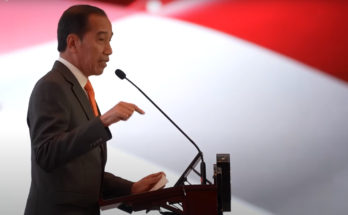We seem to be playing a game of political Russian roulette in UK. Place your cross – pull the trigger for a new leader – see what happens.
Labour’s pseudo victory in the 2017 general election is more Arab Spring than the Attlee-esque collective enlightenment it’s getting portrayed as. If Labour doesn’t realise that, it will lose a lot of the ground gained against the Tories. Perhaps even to a reanimated UKIP – ‘cos the issues it channelled have not died.
Since 2010, British elections have followed a surprising and unforeseen pattern, including the Scottish independence and Brexit referendums, and even Labour and Tory leadership elections. Neither the professional commentariat nor their close brethren, political strategists, seem able to bottle the zeitgeist adequately. Instead, left and right continually regenerate narratives, which masquerade as insight and solutions until they are unmasked by the reality of plebiscite.
“And it’s a triumph of sentiment over arithmetic that Labour’s 15% gain in vote share from early predictions is epoch changing”
In fact, the engine of our current instability is our failed, financialised economic system and the distortions it perpetuates and accentuates. No-one has yet sold the electorate a convincing alternative solution. Unpredictability continues to accelerate rather than moderate. It’s extraordinarily naive to believe Corbyn’s Labour found the policy and ideological stabilisers for the UK in the space of seven weeks of electioneering. And it’s a triumph of sentiment over arithmetic that Labour’s 15% gain in vote share from early predictions is epoch changing. It’s merely proof of our ongoing state of flux. To date the Tories have actually been a relative rock of polling stability amid the chaos – they increased their vote share in 2017.
Meanwhile Corbyn’s influence in Parliament as Labour leader has been under- reported. His influence comes from adherence to clear principles and an ear for real issues. However, I’m extremely sceptical that he has succeeded in selling a solution to the British people that can see him move from principled opposition leader to Prime minister. My scepticism is based on a mix of circumstantial and substantial reasons.
Circumstantially, he has profited at least as much from populist sentiment as from ideological commitment to his cause. He was the non-establishment, protest candidate and he should probably thank Nigel Farage for clearing the way for him. And he faced off against what proved to be a very wooden establishment-hugging, “strong and stable” incumbent. In the next episode of UK politics, he will no longer be the underdog and the bar of approval will be higher in all regards.
More substantively, while the electorate does want his investment and hope, it simultaneously needs to understand, in a practical way, the problems and the rot he might cut away. A nation of overextended homeowners, low savers, tapped out renters, JAMs and insecurely employed people will only invest in hope if they understand his vision at a personal rather than macro-ideological level. Solution? He needs to go for a mega-sized blend of pragmatism and collectivism to win over the middle ground.
Political, economic, academic and journalistic sorts got too hung up on the financial literalism of the “magic money tree” war that erupted over the manifestos. The public does not care about the technicalities of whether there is or isn’t a magic money tree. To them, the magic money tree broadly represents the possibility that the government can play a significant role in the uplift in living standards for everyone. But it can’t just be waved into being by redistribution – “for the many, not the few”.
Nevertheless the electorate can believe that the government does have some powerful magic at its disposal and that a real choice to do things differently is possible. The British people can be sold something more positive and economically literate than austerity. Call it a sort of wisdom of crowds, whereby no-one is individually correct in their economic comprehension but as a collective average they approximately get it.
“a policy of a decent house for all in decent proximity to work regardless of means, could be the mega strategic political and investment vision the UK needs”
However, the crowd won’t believe that fairness and magic alone provide the solution. I’m very sceptical the electorate will vote for just taxing and blaming the rich. It needs to hear what role ordinary people and institutions, like schools and hospitals, play other than receiving more money. Most of us use these services and greatly appreciate them. But we also know from personal experience that they are flawed, dysfunctional and frequently provide poor service. We won’t believe a fix will come out of just pouring in more money. Labour and the unions need a vision that blends hands-on pragmatism alongside their collectivist hope.
What could a new pragmatism look like as strategic policy? Let’s try: a focus on cost cutting that reduces the cost of living while improving its quality for the many. The one and only starting place is housing. It’s inconceivable that any UK government can pay public servants sufficiently well that they can afford decent housing in many UK towns and cities. The government should provide a new deal of better housing in exchange for lower pay. This is a route to productive investment and sensible management of financial resources and goodwill;. Hhope with cost cutting.
Deepened and extended, this can be a strategy to reclaim Adam Smith’s “commons” for 21st century UK. Making public service noble and aspirational again is a difficult problem to address if we are to retain the substance of a society most of us like, value and rely on to enhance quality and security of life. Government spending as a percentage of GDP has stayed quite stable since the 1950s but transfer payments, like welfare, have squeezed out productive investment. The solution cannot be just to pay more tax. There must be a smarter trade-off to add.
More generally, a policy of a decent house for all in decent proximity to work regardless of means, could be the mega strategic political and investment vision the UK needs. Is there a better way to begin to overturn our dismal productivity problem or shore up our creaking yet extraordinarily expensive welfare state? After all, what’s the point in more skills or education if you can never really expect to live well unless you are at the economic pinnacle of society? And wouldn’t it be great to be able to make schools better and spend less money on them?
Whether it’s left or right that wins the chance to set the new non-Thatcherite, non-neoliberal agenda for the next 20 years, it is still there to be won. Corbynites need to ice the champagne and roll up their sleeves, otherwise the Tories will go chameleon and sneak in again. The next vote will come soon. Which party will find a bullet in their chamber?



